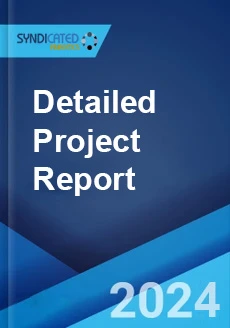
GCC Biosimilar Market by molecule (Infliximab, Insulin Glargine, Epoetin Alfa, Etanercept, Filgrastim, Somatropin, Rituximab and Follitropin Alfa) by Type of Manufacturing (In-House Manufacturing and Contract Manufacturing), by Indication (Auto-Immune Diseases, Blood Disorder, Diabetes, Oncology, Growth Deficiency and Female Infertility): Industry Analysis, Trends, Growth and Forecast 2023-2028
GCC Biosimilar Market Overview:
The GCC biosimilar market was worth US$ XX Billion in 2022, expanding at a CAGR of X% during 2017-2022. The market is projected to register a CAGR of X% during 2023-2028, reaching US$ XX Billion by 2028. Biosimilars are medical products generally produced using biological components such as microorganisms and animal or plant cells. They have a complex molecular structure and are highly similar to a reference biologic drug in terms of quality, safety, and efficacy. They are commonly used to develop monoclonal antibodies, therapeutic proteins, and vaccines. They can only be manufactured after the patent expiration of the reference product and are often produced in licensed facilities that are monitored as an essential part of post-market surveillance. They are more expensive than generic medications as their production is more complex and requires more investment in research and development (R&D). They are considered harmless and safe for medical usage, with minor variations in clinically inactive components. As a result, biosimilars are gaining immense popularity among healthcare professionals across GCC countries for preventing, determining, and treating numerous medical ailments.
The GCC biosimilar market is primarily driven by the increasing number of patent expiration of blockbuster biologic drugs. Moreover, governments of GCC countries are taking numerous initiatives to encourage the production and usage of biosimilar drugs and develop strategic models for discount pricing. In line with this, the implementation of supportive policies to accelerate the approval of biosimilar drugs is positively influencing the market growth. Additionally, the rising demand for biosimilar drugs due to the increasing prevalence of chronic medical conditions, such as cancer, diabetes, and autoimmune diseases, as they are more affordable than their branded counterparts, is acting as another major growth-inducing factor. Besides this, the growing awareness about the availability of high-quality biosimilars that offer improved access to treatment among patients has augmented the product demand. Furthermore, the rising funding and investments from both public and private organizations to upgrade the existing healthcare infrastructure across the GCC region and numerous technological advancements across the industry are contributing to the market growth. Other factors, including ongoing R&D activities in biotechnology and medical science fields, expanding geriatric population, sedentary lifestyles, rapid urbanization, and widespread product availability, are also anticipated to drive the market further.
Beginning with a regional overview, the report explores the dynamics that have a strong influence on the GCC biosimilar market and can also impact its future growth. Taking 2022 as the base year, the report covers historical market scenario from 2017-2022 and provides forecasts till 2028. This includes the study of value and volume trends and pricing history. Growth inducing factors, market restraints and recent developments have also been analysed in the report in order to provide a deeper knowledge about the industry. On a regional basis, the report examines the GCC biosimilar market in Saudi Arabia, United Arab Emirates, Qatar, Kuwait, Oman and Bahrain. For each of these regions, the report studies the GCC biosimilar market in detail for latest trends, outlook and opportunities.
The report analyses the competitive structure of the GCC biosimilar market industry and provides the profiles of major players operating in the market. The price margins for the products along with the various success and risk factors for manufacturers have also been covered in the report. Moreover, in order to determine market attractiveness, the report analyses the GCC biosimilar market industry along the parameters of the Porter’s Five Forces model. This model examines the degree of competition in the GCC biosimilar market industry by analysing the threat posed by new entrants and substitutes, and the bargaining power of suppliers and buyers. SWOT analysis of the market has also been presented in the report which highlights the strengths, weaknesses, opportunities and threats pertaining to the GCC biosimilar market industry. Furthermore, the value chain analysis of the GCC biosimilar market industry has also been covered in the report. This comprises of all the activities in the value chain, such as the procurement of various raw materials, manufacturing, sales and distribution.
GCC Biosimilar Market Segment Insights:
The GCC biosimilar market has been analysed as followed:
By Molecule:
- Infliximab
- Insulin Glargine
- Epoetin Alfa
- Etanercept
- Filgrastim
- Somatropin
- Rituximab
- Follitropin Alfa
By Type of Manufacturing:
- In-house Manufacturing
- Contract Manufacturing
By Indication:
- Auto-Immune Diseases
- Blood Disorder
- Diabetes
- Oncology
- Growth Deficiency
- Female Infertility
By Country:
- Saudi Arabia
- United Arab Emirates
- Qatar
- Kuwait
- Oman
- Bahrain
Country-wise, the market has been segmented into Saudi Arabia, United Arab Emirates, Qatar, Kuwait, Oman and Bahrain. Amongst these, Saudi Arabia represents the largest market, accounting for majority of the GCC region.
Competative Landscape:
The competitive landscape of the industry has also been examined along with the profiles of the key players.
Highlights of the GCC Biosimilar Market Report:
- Historical and current scenario
- Trends and developments
- Impact of COVID-19
- Market forecast
- Price analysis and forecast
- Porter’s five forces analysis
- SWOT analysis
- Value chain analysis
Report Customisation:
The GCC biosimilar market report can be customised as per your requirements. You can get in touch with our analyst, who will make sure that the report suits your research needs
Purchase Options
Ask For Customization
Personalize this research
Triangulate with your own data
Get data as per your format and definition
Gain a deeper dive on a specific application, geography, customer or competitor
Any level of personalization
Get in Touch
Call us on
US: +1-213-316-7435
Uk: +44-20-8040-3201
Drop us an email at
sales@syndicatedanalytics.com